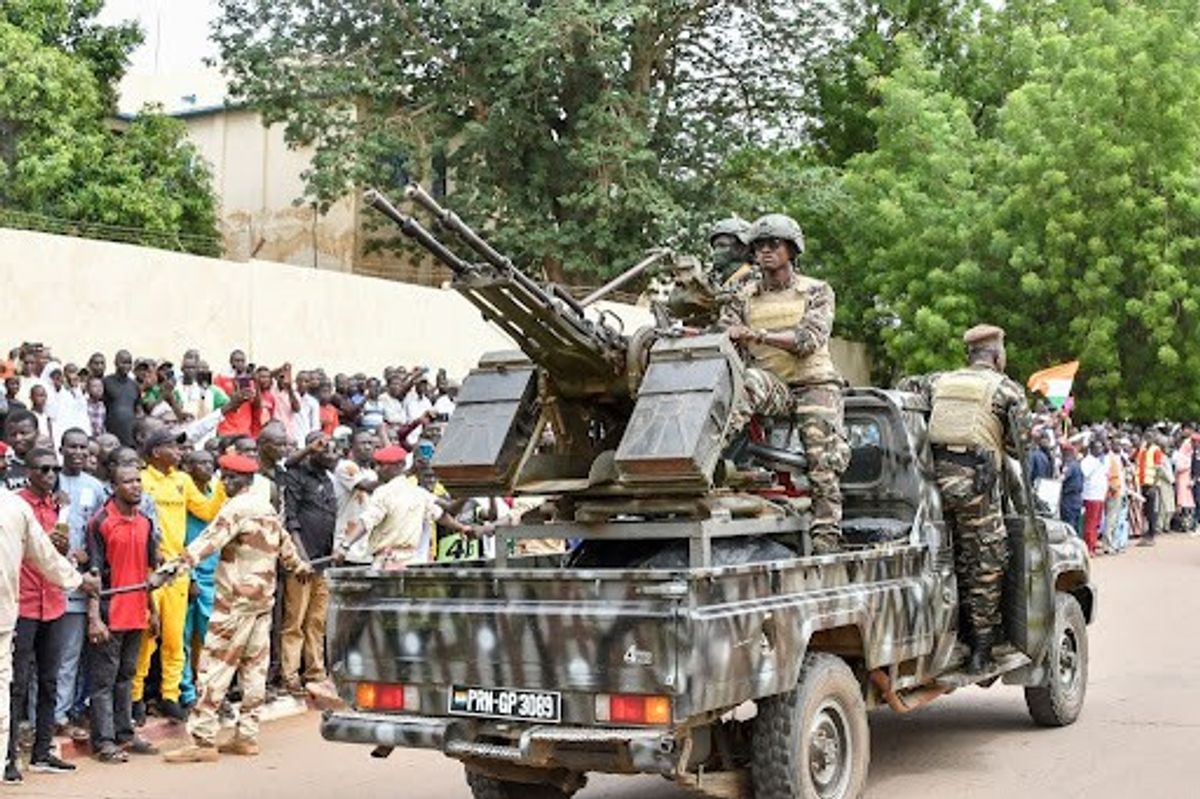OPINION — During the ten-year Soviet occupation of Afghanistan, the United States leveraged Pakistan’s geostrategic position to support the Afghan Mujahideen in their fight against the Red Army. What began as a marriage of convenience evolved into a strategic partnership after the Bush administration launched the Global War on Terror in 2001. Washington required Islamabad’s cooperation in its military campaign in Afghanistan, and in return, Pakistan received billions of dollars in annual aid. For subsequent administrations, however, relations with Pakistan were approached more cautiously, given Islamabad’s political instability and its Islamist tendencies, particularly its support for Salafi-Jihadist (SJ) groups in the region.
Donald Trump’s second term has marked a departure from decades of U.S. policy toward Pakistan, bringing the quasi-military state closer to Washington. President Trump has reportedly dined with Pakistan’s de facto ruler, Chief of Army Staff Field Marshal Asim Munir, and even offered to mediate on Kashmir against India’s objections. In return, Pakistan facilitated operations for a Trump-backed cryptocurrency firm to establish a crypto reserve in the country, allowed U.S. companies to explore its untapped oil reserves, and nominated Trump for the Nobel Peace Prize. Notably absent from these exchanges, however, was any discussion of combating transnational terrorism.
National security priorities must take precedence over economic ties. Ignoring Pakistan’s track record of harboring global terrorists and supporting transnational SJ groups is likely to backfire in the near term. Washington must demand concrete accountability on core national and regional security issues before granting Islamabad further concessions.
Pakistan’s Transnational Terrorist Network
The aftermath of the four-day India-Pakistan war in May exposed Pakistan’s enduring ties to regional terrorism. During Operation Sindoor, the Indian Air Force struck nine alleged Jaish-e-Mohammad (JeM) and Lashkar-e-Taiba (LeT) training centers in eastern Pakistan—both groups designated as Foreign Terrorist Organizations (FTOs) by the United States. Indian intelligence reports indicate these groups are now actively recruiting and fundraising in Khyber Pakhtunkhwa Province (KPK) to reconstitute their ranks. At one such event, senior JeM commander Maqsood Illyas Kashmiri openly boasted about carrying out attacks in Delhi and Kandahar, including operations targeting U.S.-backed troops. Kashmiri further claimed that Field Marshal Asim Munir dispatched senior general officers to attend the funerals of terrorists killed during Operation Sindoor. This assertion is reinforced by the widely circulated image of senior Pakistani army officers, led by U.S.-designated terrorist Hafiz Abdur Rauf, offering funeral prayers for slain militants in Muridke, Punjab Province. The presence of uniformed generals with full military protocol at these funerals underscores the deep ties between Pakistan’s military establishment and terrorist organizations. In a separate video, an LeT commander pledged to rebuild the sites destroyed by India and urged Pakistani youth to join the group’s ranks.
Pakistani terrorist groups also exploit public platforms to advance their broader pan-Islamist agenda. Talha Saeed, son of LeT founder Hafiz Saeed—who orchestrated the 2008 Mumbai attacks—has openly held election rallies in Pakistan, despite being under global scrutiny for terrorist links. At one such rally in Punjab, Talha even threatened to assassinate Indian Prime Minister Narendra Modi. This highlights the alarming impunity with which designated FTO members operate in Pakistan. Similarly, LeT deputy leader Saifullah Kasuri has made multiple public appearances since being identified by Indian intelligence as a key planner of the April 2025 Pahalgam terrorist attack. Kasuri, who also heads LeT’s political front party, Milli Muslim League (MML), traveled to Doha in August 2024 to meet Hamas leader Khaled Mashal and offer condolences on the assassination of Hamas Chief Ismail Haniyeh. Despite Kasuri and his political outfit being sanctioned by the U.S. Treasury, he managed to travel to Qatar and meet with members of other global terrorist groups—an act unlikely to have occurred without logistical and financial backing from the Pakistani state machinery.
In theory, Pakistan has been central to U.S. counterterrorism efforts in the region. In practice, however, it has remained a key sponsor and enabler of transnational terrorism. With the state and military’s tacit support, local jihadist groups have gained a stronger voice in the global pan-Islamist movement. Field Marshal Munir has faced no serious pressure to dismantle these organizations. On the contrary, their continued presence serves his interests—an emboldened position reflected in his past threats, including a chilling remark at a private dinner in Tampa, Florida, where he invoked Pakistan’s nuclear arsenal against India.
The Cipher Brief brings expert-level context to national and global security stories. It’s never been more important to understand what’s happening in the world. Upgrade your access to exclusive content by becoming a subscriber.
Know Thy Client
The United States must recognize the inherent risks of deepening economic engagement with Pakistan. Today, Pakistan’s notorious Inter-Services Intelligence (ISI) remains deeply embedded across society, conducting mass surveillance and systematically persecuting minority groups in Khyber Pakhtunkhwa and Balochistan. According to a recent Amnesty International report, Pakistan’s intelligence services employ Chinese surveillance technology to suppress dissent in regions with strong secessionist tendencies. If Washington seeks to explore Balochistan’s mineral-rich reserves, it must account for the serious security risks posed by reprisal attacks. Beijing’s experience with the China-Pakistan Economic Corridor (CPEC) offers a stark warning. Baloch militant groups have repeatedly attacked Chinese infrastructure, killed Chinese workers, and sabotaged projects, stalling progress for years. U.S. contractors and private citizens would likely face similar threats, as many Baloch view outside exploration as illegitimate.
At the same time, joint financial ventures in Pakistan risk fueling unregulated and unchecked transactions that could benefit terrorist groups. In 2022, the Financial Action Task Force (FATF) removed Pakistan from its grey list after the government complied with anti–money laundering standards. Yet Pakistan’s own finance minister recently warned the country could slip back onto the list due to the high volume of unregulated digital transactions. If the United States invests in Pakistan’s cryptocurrency reserve—which currently lacks safeguards or regulatory oversight—it risks inadvertently enabling terrorist organizations that exploit this unregulated environment. The potential reputational damage to the Trump administration from such complicity would be severe and far-reaching.
Conclusion: The Way Forward
The United States must urgently reevaluate the foundations of its engagement with Pakistan. Rather than maintaining a short-sighted, transactional approach, Washington needs a long-term strategic forecast that accounts for the risks of dealing with an unstable quasi-military state. Civil conflict, large-scale terrorist attacks, and violent reprisals from marginalized minority groups remain immediate dangers. For example, on September 22, the Pakistan Air Force carried out airstrikes in KPK's Tirah Valley that killed at least 24 Pashtun civilians, including women and children. Such botched operations are likely to fuel reprisal attacks by Pashtun-dominated groups such as the Pakistani Taliban (TTP) and their affiliates. U.S. officials must therefore assess Pakistan’s volatile political and security landscape before expanding American stakes in the country.
Leaving behind a legacy that strengthens Islamist groups in South Asia would undermine both U.S. security interests and President Trump’s political standing. Before deepening ties, Washington must extract meaningful accountability from Pakistan’s civil-military establishment. History makes clear that Pakistan cannot be fully aligned with American priorities; at best, it can be managed. The United States must therefore tread carefully—demanding guarantees, setting strict conditions, and preparing contingencies—if it is to avoid becoming complicit in Pakistan’s destabilizing behavior.
The Cipher Brief is committed to publishing a range of perspectives on national security issues submitted by deeply experienced national security professionals.
Opinions expressed are those of the author and do not represent the views or opinions of The Cipher Brief.
Have a perspective to share based on your experience in the national security field? Send it to Editor@thecipherbrief.com for publication consideration.
Read more expert-driven national security insights, perspective and analysis in The Cipher Brief













